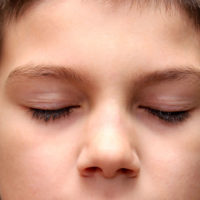Depression
-

Is parental educational status to blame for academic problems in children?
Children of parents with low educational attainment have up to three-fold higher risk of developing a psychiatric disorder such as attention deficit/hyperactivity disorder (ADHD) and depression than children of parents with high educational attainment.
Read more -

Depression
Depression is common in children and young people, particularly in adolescence and among girls. The causes of depression in children and young people are complex, but it is likely to be caused by a combination of environmental and genetic factors.
Read more -

Mindfulness-based interventions improve depression and anxiety outcomes in youths
In 2019, Darren Dunning and colleagues compiled a Research Review for the Journal of Child Psychology and Psychiatry in which they evaluated, for the first time, the efficacy of MBIs on cognition and mental health in adolescents <18 years-of-age.
Read more -

What does a CAMHS MDT need to know about the genetics of psychiatric disorder?
Our knowledge of the genetics of psychiatric disorders has increased rapidly in recent years. Discover what has been learnt, focusing on some of the psychiatric disorders commonly seen in CAMHS, before going on to discuss how these findings may be relevant to clinical practice.
Read more -

Psychotic Experiences: what they are and why we care about them?
Over the past 20 years, findings from the field of psychosis research have shed new light on the prevalence of PEs among children and adolescents, revealing that about 17% of children and 8% of adolescents report experiences of these phenomena.
Read more -

Reporting of depression symptoms in children with ADHD: do parents know best?
ADHD is a common neurodevelopmental disorder characterised by hyperactive-impulsiveness and inattention. ADHD often co-occurs with emotional disorders such as depression and anxiety. Depression in particular is prominent amongst adolescents with ADHD, and can be difficult to identify as it can have similar features both to ADHD itself and to some of the side effects of ADHD medication.
Read more -

Social connectedness and suicidal thoughts and behaviors among adolescents
Suicide is a major public health concern claiming over 44,000 lives annually and ranking within the top 10 causes of death for the general population and the 2nd leading cause of death for those aged 15-24 years of age (though there is variation in this when examining causes by racial groups).
Read more -

فهم الأطفال للاكتئاب
Depression is a mental illness that affects children and especially adolescents, however little is known about how children and adolescents understand depression. Gaining an understanding of how children perceive illness can facilitate effective communication with health professionals and children’s active involvement in decision-making about their health.
Read more -

Moving towards prevention as the intervention of choice for depression in children and adolescents
Are there sub-groups of children characterized by similarities in the development of depressive symptoms? And, if there are, could this be a basis for early intervention and prevention of depressive disorder?
Read more -

The overlap between low self-esteem and anxiety/depression in CAMHS
Our systematic review aimed to establish what is known about low self-esteem and anxiety/depression in young people (<18s). We wanted to find out whether young people with clinically significant anxiety disorders and/or depression also have low self-esteem as measured on validated questionnaires. We also wanted to know whether young people with low self-esteem as measured on a validated questionnaire develop depression and anxiety symptomology later in adolescence and young adulthood.
Read more